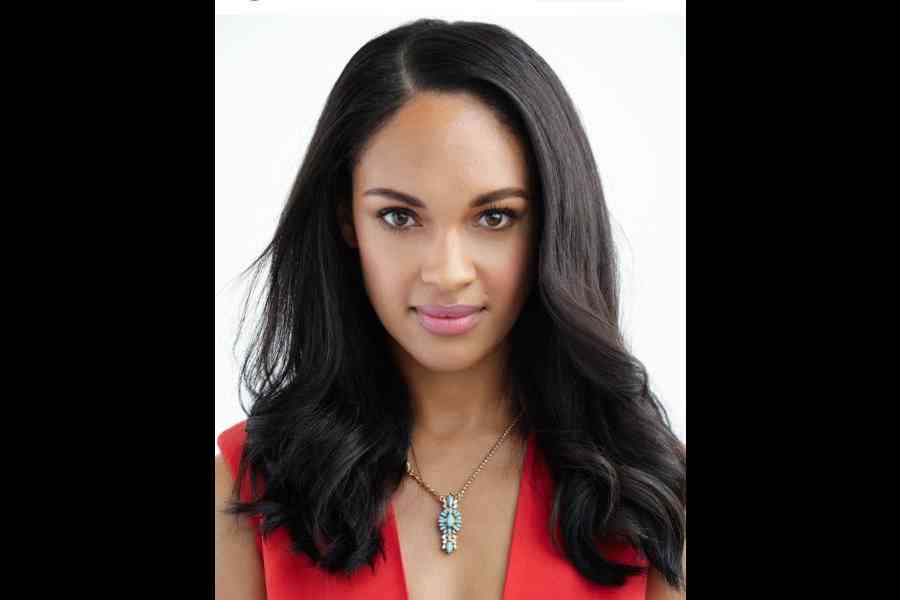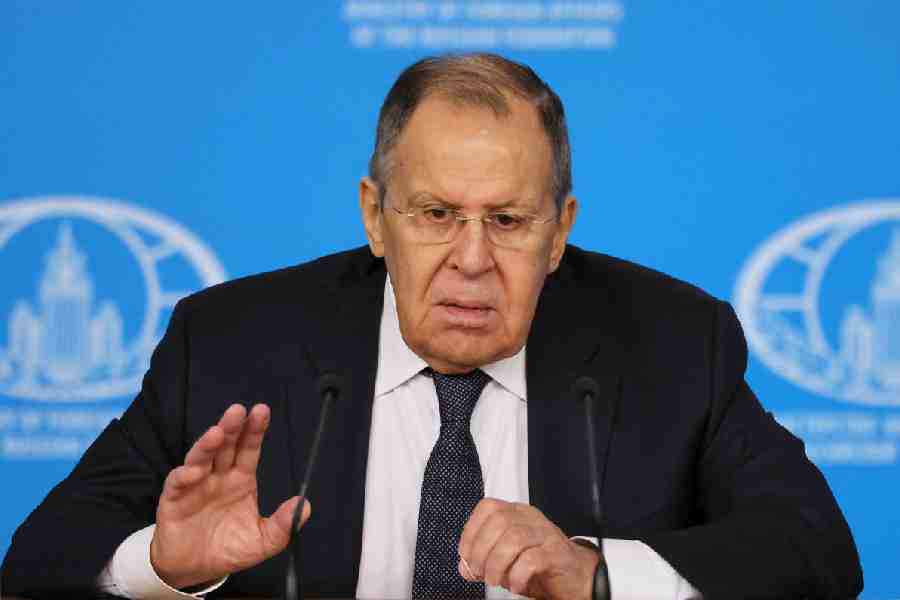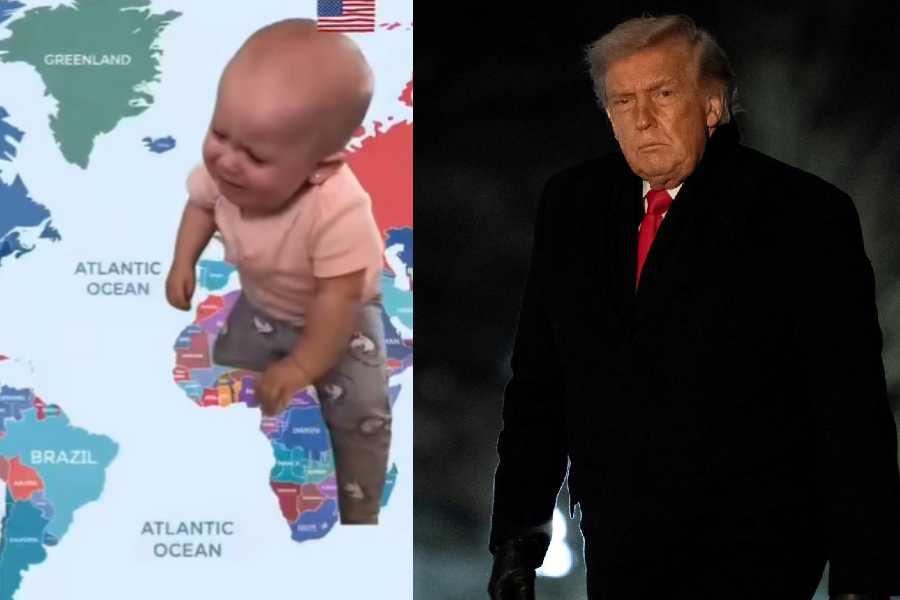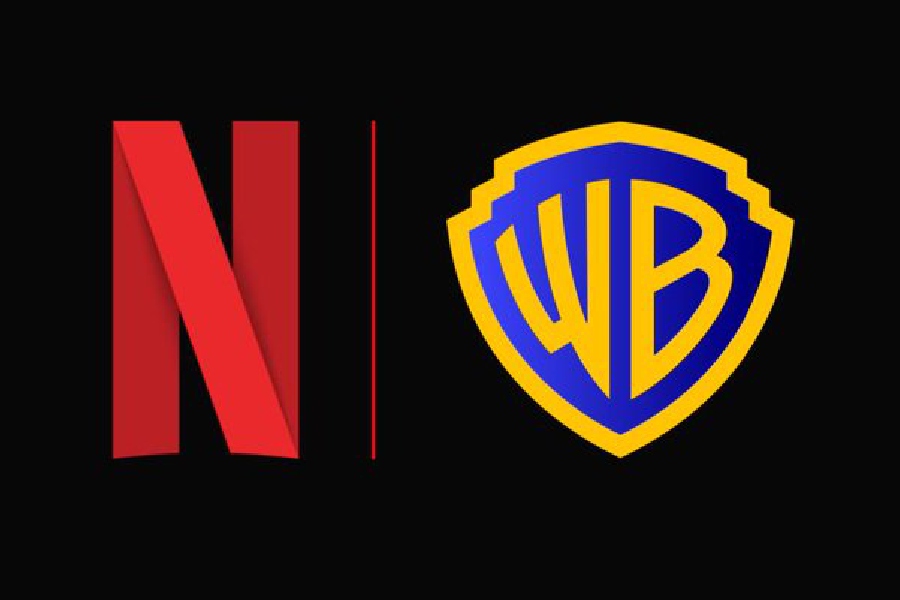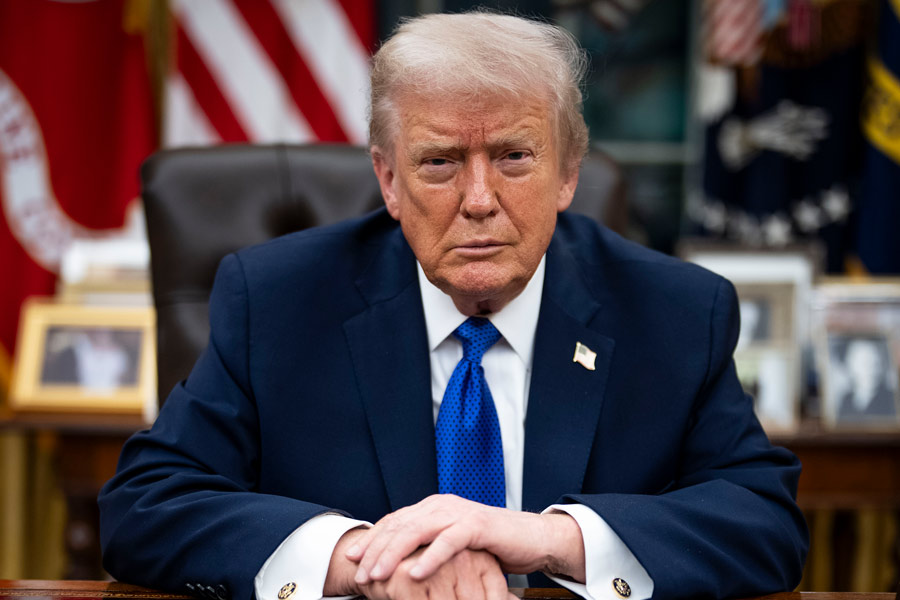With shows like Spartacus and Arrow to her name, Cynthia Addai-Robinson is not new to big-budget TV. The American actress now plays Tar-Miriel in The Lord of the Rings: The Rings of Power, Season 2 of which is streaming on Prime Video. A t2 chat with Cynthia.
In substance and scale, The Lord of the Rings: The Rings of Power counts as massive television. Was the mindset different going into the second season as opposed to the emotions in Season One?
My introduction to this series started in 2019 with my first audition. We are in 2024 and it is incredible that this has now been part of my life all these years. In the first season, it was the excitement of the unknown, of how we were going to bring this global group of actors together to tell this very well-known story, but in a new and exciting way.
Season 2 is about building on that. The first season was about introducing these characters and worlds to pre-existing fans but also to people who are new to these stories. In this second season, we take this story forward and grow out its scope because it is such a big canvas to work on. We set the table as it were in Season One and we get to feast on it in Season 2.
What do you think works about The Rings of Power?
What excited me the most was the global reach of this show. We have fans from every corner of the globe. That doesn’t always happen. With this show, we have travelled to other countries and every time, the reception has been incredible. That, to me, has been the best part... that this is a universal story. We also have diversity within our show so that it feels representative of the world at large.
In Season 2, did being well-versed with the world and the character take away the element of surprise or spontaneity in some way?
There is definitely still the opportunity to be surprised, both as a performer in the show, and I think for the audience as well. Even if you know where this story goes, (J.R.R.) Tolkien has a twist, a surprise up his sleeve, and it isn’t necessarily a straight line from point A to point B. It is a journey... a long and winding road. I know the end point of my character (Tar-Miriel) but everything that happens in the second season was a surprise to me. I didn’t necessarily know where it was going to go this season. As I got the script and saw what my arc was going to be, I thought: ‘Wow, this is amazing.’ Even if you think you know where the story is going, there are elements you will not see coming.
Do you have to go completely by the script or is there room for improvisation?
This is not a series where improvisation works. It is a tricky one to improvise. But as far as collaboration is concerned, all cast members come in with our ideas and thoughts. We have a lot of ownership over these characters. So it is always a conversation with the showrunners, trying to get to the same place and achieve the same result.
We actors go off into our little corners and practise with our scene partners. We want to feel like we are telling the best version of this story that we can. We always arrive at a place that feels well-earned and ultimately honours these characters and stories.
But in terms of improvising on the day, I wouldn’t say that happens so much. When you are doing comedy, you can improvise. But with this type of story, it is really more of a discussion before getting to the end
What has been the biggest challenge of playing Miriel?
At the end of Season One, Miriel is struck blind. In the second season, the audience witnesses how she navigates the position she is in while blinded. I wanted to make sure it wasn’t perceived as a disability. For me, it felt like she is working in spite of her blindness and leaning on Elendil (played by Lloyd Owen) as her right-hand man. She is using all her senses and knowledge, despite the fact that she can’t actually look at what is going on.
The blindness element was what I had to work on. There is something to be said about looking your fellow actor in the eye, and what happens when you don’t have that ability anymore. I wanted to make sure it wasn’t something that diminished her, that she still had strength and understanding without her vision.
In the second season, I do a fair bit of work in the water. That challenge was interesting and was something to overcome for me as a person as well. This was the first time I acted underwater. It is not as simple and straightforward as it looks. I had to get over my fears of being under water, using a respirator to breathe underwater and staying under for long periods of time. But I had a great crew around me.
In Season One, I had to ride a horse which was also scary for me. Also, being flown in a helicopter... terrifying! (Smiles) These things scare you but when you overcome it, it is a good feeling. Season 2 had great challenges but they were good challenges.
Being blind and acting under water. That is kind of a double whammy, isn’t it?
Yes, very, very difficult. But then again, you use it. There are many things that we do that make us uncomfortable. And then when we have accomplished it, it feels like: ‘Hey, all right, I did that. I am proud of myself.’ I did not let my brain take over and think about what was scaring me. I channelled Miriel’s bravery and felt this was the moment to face my fears and that I am going to be okay.
This is a fantastical world but the characters are relatable in some way or the other. Where do Cynthia and Miriel meet?
There is something about Miriel’s position that is extremely isolating. She has a very small inner circle. Initially, that inner circle consists of Pharazon (played by Trystan Gravelle), who is her cousin, but suddenly, she is suspicious of his intentions and loyalties. When you feel that sense of isolation and also that realisation that you can’t articulate it to someone you can trust, it is a very lonely place to be.
I don’t envy that position. It is a hard job to be at the top. But I understand the feeling of not being sure who you can turn to and the battle that goes on within you about what is the right thing to do. The great thing about Tolkien and fantasy, in general, is that there are creatures and otherworldly things, but there are human emotions too and we can relate to them.
Everybody knows what it is to be lonely. Everybody knows what it is to be conflicted, about being confused about one’s belief system. It is really about finding the relatable and putting that in the fantastical. That is why these stories have lasted as long as they have and will continue to last.
What makes Tolkien universally relevant?
You could look throughout history and find times of crisis and tumult. So is the world we are living in today. The best stories are both timely and timeless. They speak to what is going on now but also reference moments in history... no matter what country or what political situation. That is why people get so invested in these stories because it is a place to process all your thoughts and feelings and also the world you are living in.
Ultimately, in order for this story to resonate, for as dark as it gets, there has to be a kernel of light. There has to be a sense of hope at the other end. You can’t have it be an endlessly dark tale. It has to feel like people are fighting to move towards the light. That is what I view Season 2 as. It does take a dark turn, but it is about what people are ultimately fighting for. They are fighting to protect and save the world they love.
When you came into this project, you were not an obsessive fan of The Lord of the Rings. Has that changed now?
I definitely did a deep-dive throughout Season One. What I have loved the most is that it is the fans who educate us. They bring their knowledge, they bring their theories. I love hearing these guesses and theories because they come from a place of deep knowledge of the material and of Tolkien’s full lore.
I try to strike a balance between immersing in it and then when it comes to the performance part, I have to get to the human aspect of this story. Questions like... what are these relationships? What is this person striving for? Even within the detail and the richness of what Tolkien created, these are still stories of parent and child, friend, leader and citizen. So I have to hone in on that and look at the story that we have to tell.
But I love being a part of this community. We have a dedicated bookshelf at home because my husband is a huge Tolkien fan. We don’t just have Tolkien’s works, but of other authors who have interpreted the material and his artwork. Once you are brought into this fellowship, you become a lifelong member.
Was your husband the most excited when you landed this job?
Without a doubt! I had just been cast and we went into the lockdown. We were at home trying to guess who I was playing, what the story was going to be. We had very little information at the time. My husband is like a Tolkien detective! (Laughs) He was able to figure out stuff before me. He was my secret weapon!

